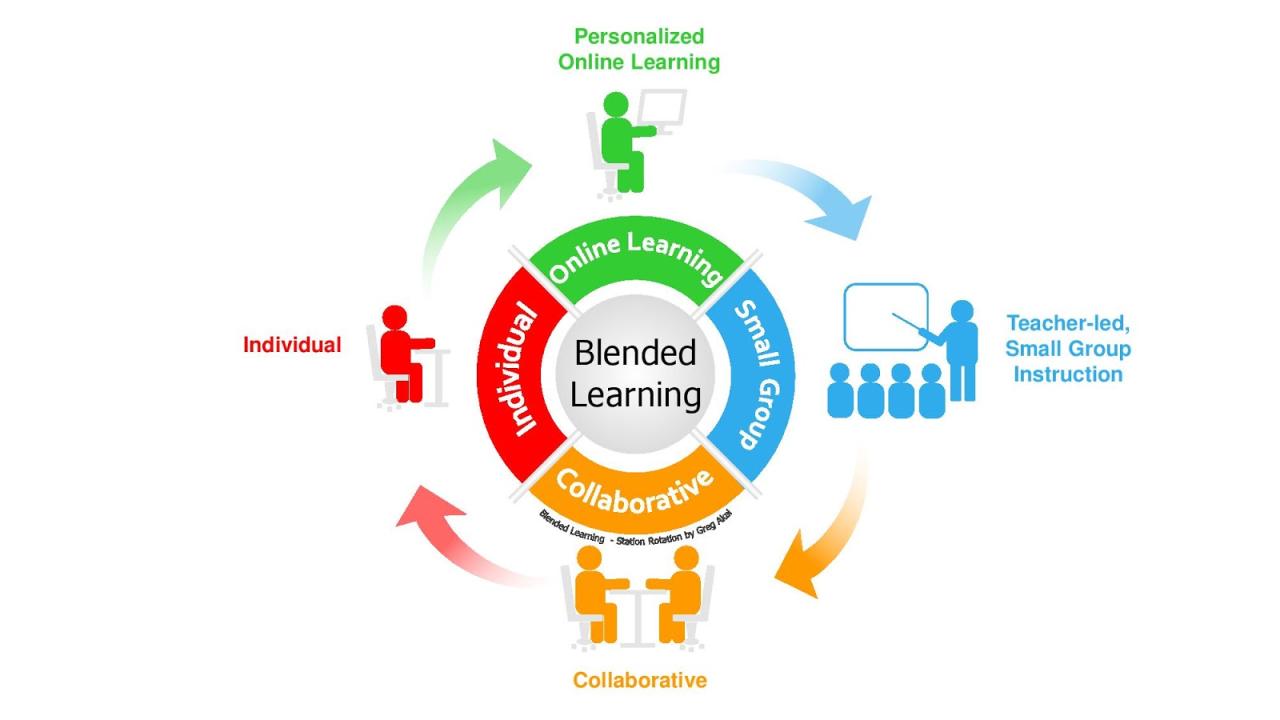How Learning Analytics Improve Education Apps highlights the transformative role of data in enhancing educational tools. As technology continues to evolve, learning analytics has emerged as a pivotal component, offering insights that refine user experiences and educational outcomes. By harnessing data-driven strategies, developers can create applications that not only meet the needs of learners but also adapt to their individual progress.
This approach allows educators to tailor content, identify learning gaps, and foster engagement, ultimately leading to a more personalized educational experience. Furthermore, the integration of analytics empowers stakeholders to make informed decisions that enhance curricular design and teaching methodologies.
In an increasingly interconnected world, the importance of understanding global perspectives and cultural nuances cannot be overstated. This article aims to explore the significance of cultural intelligence (CQ) in both personal and professional settings. Cultural intelligence refers to the capability to relate and work effectively across cultures. It is a critical competency in today’s diverse environments, where individuals frequently interact with people from different backgrounds, beliefs, and values.
Cultural intelligence comprises four primary components: cognitive, emotional, physical, and motivational. Each aspect plays a vital role in fostering effective communication and collaboration among individuals from various cultural backgrounds. Cognitive Component of Cultural IntelligenceThe cognitive aspect of CQ pertains to an individual’s knowledge of different cultures, including their norms, practices, and social structures. An understanding of cultural frameworks enables individuals to interpret behavior in culturally appropriate contexts.
Research indicates that individuals with high cognitive CQ are better equipped to navigate complex social situations, as they can recognize and respond to cultural cues. For instance, understanding the concept of ‘saving face’ in East Asian cultures can significantly alter how one approaches conflict resolution in a business environment.To develop cognitive CQ, individuals can engage in cultural education, including workshops, reading literature, or participating in cultural immersion experiences.
By consciously expanding their knowledge base, individuals become more adept at recognizing cultural differences and adapting their behavior accordingly. Emotional Component of Cultural IntelligenceThe emotional aspect of cultural intelligence encompasses an individual’s ability to recognize their own emotions and the emotions of others in intercultural interactions. This component is crucial for building empathy, which is essential for effective communication. Studies suggest that individuals who possess high emotional CQ are more adept at managing interpersonal relationships, particularly in multicultural settings.Developing emotional CQ involves self-awareness, empathy, and the ability to regulate one’s own emotions in diverse situations.
Engaging in active listening, asking open-ended questions, and demonstrating genuine interest in others’ perspectives are practical strategies to enhance emotional CQ. By fostering emotional intelligence, individuals can create an environment of mutual respect and understanding, which facilitates productive collaborations. Physical Component of Cultural IntelligenceThe physical component of CQ pertains to an individual’s ability to adapt their behavior and communication style in different cultural contexts.
This includes non-verbal communication, such as body language, gestures, and eye contact, which can vary significantly across cultures. For example, maintaining eye contact is considered a sign of confidence in Western cultures but may be perceived as disrespectful in some Asian cultures.Individuals seeking to improve their physical CQ can practice awareness of their own non-verbal cues and learn the non-verbal communication styles of other cultures.
Additionally, participating in role-playing scenarios or cultural exchanges can provide practical experience in adapting behavior to suit different cultural contexts. Motivational Component of Cultural IntelligenceThe motivational component of cultural intelligence refers to an individual’s willingness to engage in intercultural interactions. This aspect is crucial as it influences a person’s readiness to learn about and adapt to different cultures. Individuals with high motivational CQ are often more open-minded and curious, which enhances their ability to navigate cultural complexities.To cultivate motivational CQ, individuals can actively seek out diverse experiences and friendships, participate in cultural events, and approach intercultural interactions with a spirit of curiosity and respect.
Developing an intrinsic motivation to understand and appreciate cultural differences can lead to more meaningful connections and collaborations. The Importance of Cultural Intelligence in the WorkplaceIn today’s globalized economy, cultural intelligence has become increasingly significant in the workplace. Organizations are often composed of diverse teams that bring a variety of perspectives and ideas. High CQ among employees can lead to enhanced creativity, innovation, and problem-solving capabilities. Furthermore, teams with high cultural intelligence are better equipped to manage conflict, as they can navigate cultural misunderstandings more effectively.Research indicates that organizations that prioritize cultural intelligence tend to experience higher employee satisfaction and retention rates.
Creating a culturally intelligent workplace involves training programs, inclusive policies, and initiatives that celebrate diversity. By fostering an environment that values cultural awareness, organizations can harness the full potential of their diverse workforce. Cultural Intelligence and LeadershipEffective leadership in a multicultural context requires a high level of cultural intelligence. Leaders with strong CQ can inspire and motivate diverse teams by demonstrating inclusivity and understanding.
They are adept at recognizing the cultural dynamics within their teams, which allows them to tailor their leadership style to meet the varying needs of their members.Moreover, culturally intelligent leaders are more likely to facilitate effective communication, which is essential for achieving organizational goals. By leveraging their understanding of cultural differences, they can mediate conflicts, build trust, and enhance collaboration among team members.

The Role of Technology in Enhancing Cultural IntelligenceIn the digital age, technology plays a significant role in facilitating cultural intelligence. Online platforms enable individuals to connect with peers from different cultural backgrounds, providing opportunities for cross-cultural exchanges and learning. Virtual collaboration tools allow teams to work together seamlessly, regardless of geographical barriers, fostering a greater appreciation for cultural diversity.Moreover, technology can support educational initiatives aimed at improving cultural intelligence.
E-learning modules, webinars, and online courses can provide individuals with valuable resources to enhance their understanding of different cultures. As technology continues to evolve, it presents new avenues for individuals and organizations to develop and enhance their cultural intelligence. Challenges to Developing Cultural IntelligenceDespite its importance, developing cultural intelligence is not without challenges. Individuals may encounter biases, stereotypes, and preconceived notions that hinder their ability to engage with different cultures effectively.
Overcoming these barriers requires a commitment to self-reflection and a willingness to confront one’s own biases.Furthermore, the rapid pace of globalization can create a sense of cultural overload, making it difficult for individuals to keep up with the myriad of cultural norms and practices. To navigate these challenges, individuals must prioritize cultural intelligence as an ongoing journey rather than a destination.
Continuous learning, open-mindedness, and adaptability are essential for fostering cultural intelligence in an ever-changing world. ConclusionCultural intelligence is a vital competency in navigating the complexities of our globalized world. By understanding and developing the cognitive, emotional, physical, and motivational components of CQ, individuals can enhance their ability to relate and work effectively across cultures. In both personal and professional contexts, high cultural intelligence fosters meaningful connections, improves collaboration, and drives innovation.Organizations that prioritize cultural intelligence benefit from diverse perspectives and increased employee satisfaction.
As the world continues to grow more interconnected, investing in cultural intelligence will be crucial for individuals and organizations seeking to thrive in a multicultural environment. Embracing cultural diversity and committing to continuous learning will pave the way for more inclusive and successful interactions in the future.








